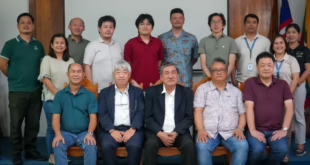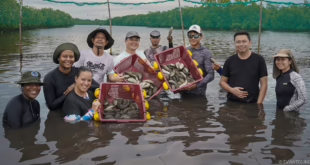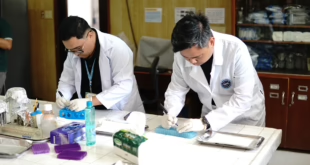By Development Communication Section

Professor Wayne Knibb of the University of the Sunshine Coast (Australia) talked to AQD staff about Genetics science and technology used in the domestication of new aquaculture species on 29 January at AQD’s Tigbauan Main Station.
Prof. Knibb said that many marine organisms are group spawners, or have numerous but tiny larvae so it is not easy to raise families separately or use physical tags. According to him, using DNA microsatellites markers is one of the tools that can be used in monitoring inbreeding and avoiding crossing of relatives across generations.
He explained that once pedigrees are established inbreeding over many generations can be managed. In addition, desirable commercial information can be gathered such as the degree to which traits are genetically influenced as well as the genetic correlations among traits. This information is essential to determine selection indices. He further discussed that pedigrees facilitate the discovery of genes responsible for traits such as genes for fillet fat content in kingfish or genes for viral resistance in shrimp.
Among the species included in their genetics studies are kingfish, oysters, shrimp, tuna, rock lobsters, grouper and tilapia. He emphasized that based on their experiences indeed genetics helped in the commercial production of new species and their domestication for aquaculture.

 SEAFDEC/AQD Southeast Asian Fisheries Development Center | Aquaculture Department
SEAFDEC/AQD Southeast Asian Fisheries Development Center | Aquaculture Department



